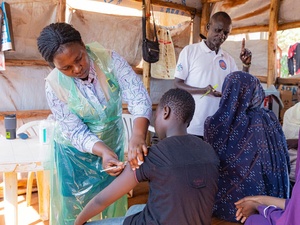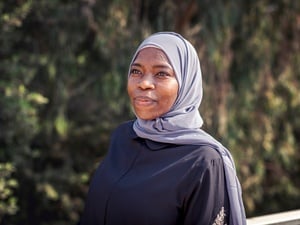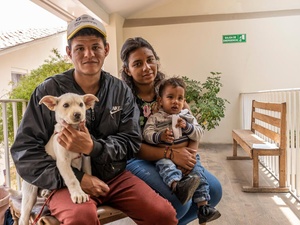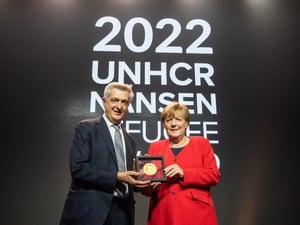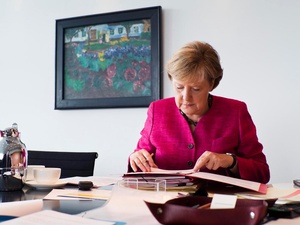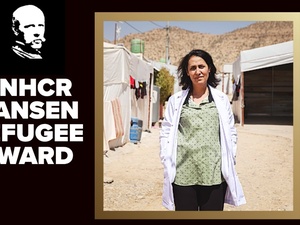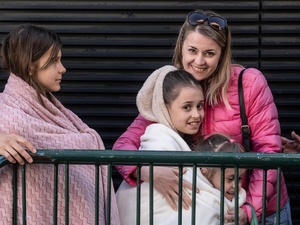A warm Austrian welcome for refugees

A warm Austrian welcome for refugees
There wasn't much time to think when the first call for help came back in early September. All the Austrians knew was that they had to act fast.
Thousands of refugees were crossing the border from Hungary into Austria, many of whom had abandoned their homes in war-torn Syria and Iraq.
Within hours, the first distribution centres for food and clothes had sprung up. Within days, a pulsing network of shelters and services for refugees was operating 24 hours a day, seven days a week, with Austrians from all walks of life donating their time. This volunteer army filled a void and rushed to the aid of their fellow human beings without question.
As Europe's refugee crisis escalates and as thousands continue to seek refuge, warm welcomes like these are needed more than ever.
Here are the stories of a few of the thousands of volunteers from all over Austria who are embracing desperate refugees. Their generosity and kindness have helped spread some joy in times of utter despair.
The grandmother, Nickelsdorf
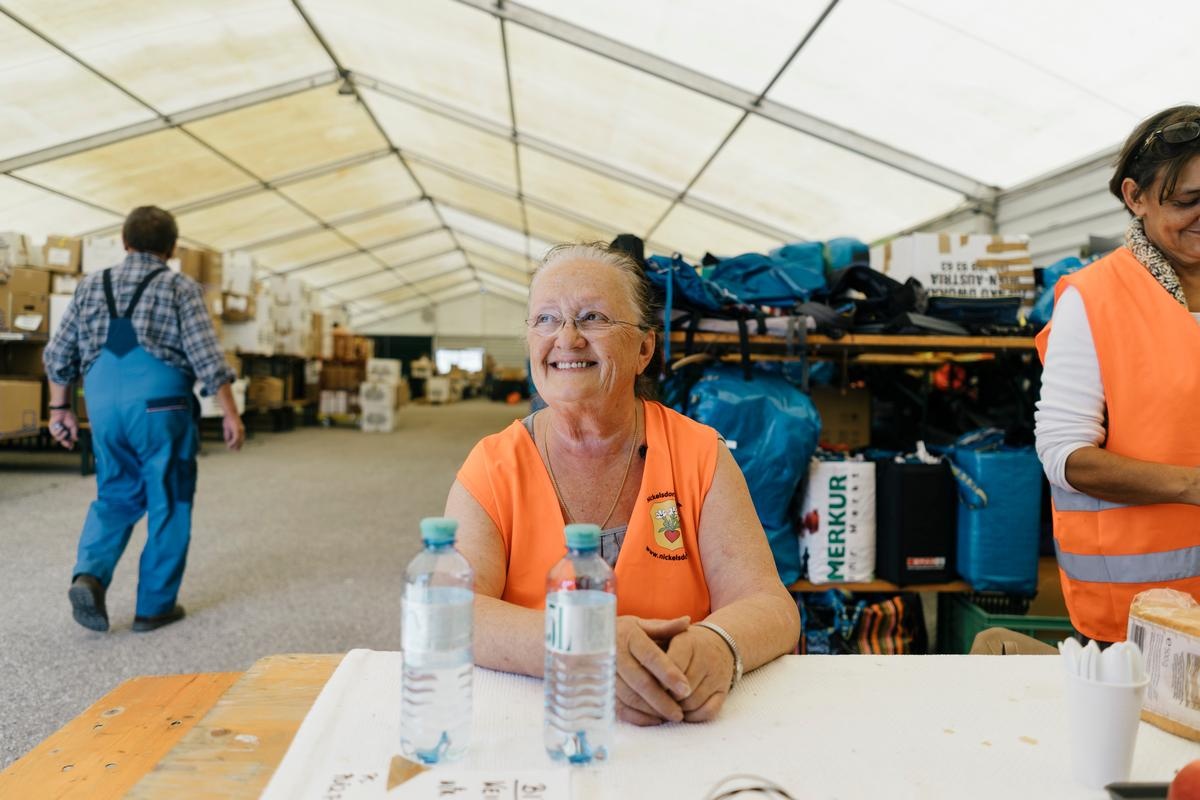
Irmtraud Prammer, 66, and her team collect clothes, food and sanitary items from people in Austria to donate to refugees.
After three weeks of collecting and distributing relief items for refugees, Irmtraud's vegetables are dying. "But," she says, smiling, "there is something else more important right now than the vegetables."
Irmtraud, 66, is a grandmother and former teacher who was born and bred in Nickelsdorf, a quiet Austrian town on the border with Hungary. Since 4 September, thousands of desperate refugees have arrived here, after fleeing their homes and trekking across countries. Some hope to seek asylum in Austria others are on their way elsewhere. Most come with nothing, and it is thanks to Irmtraud and her team of 100 volunteers who work around the clock that refugees can get a bite to eat, a sip to drink and something to wear.
A mountain of supplies fills a local warehouse normally used by a car dealership. "It's toiletries, food, shoes, underwear," Irmtraud explains. "People bring everything, from eastern and southern Austria."
Her team of volunteers distribute the relief items at the border, where over 4,200 men, women and children arrived on October 8th, tired and hungry. In recent months as many as 10,000 people have arrived in a single day.
"All of them are very thankful for everything."
As a mother of three herself, Irmtraud feels she has a duty to help. "When you see whole families coming by your house it breaks your heart," she tells me. "The kids do not have any shoes. All of them are very thankful for everything."
When asked if she has a message for European leaders, she falls silent and ponders for a moment. Then, in a solemn voice, she declares: "They should look into the eyes of children and they should open their hearts a little quicker."
The mayor, Nickelsdorf
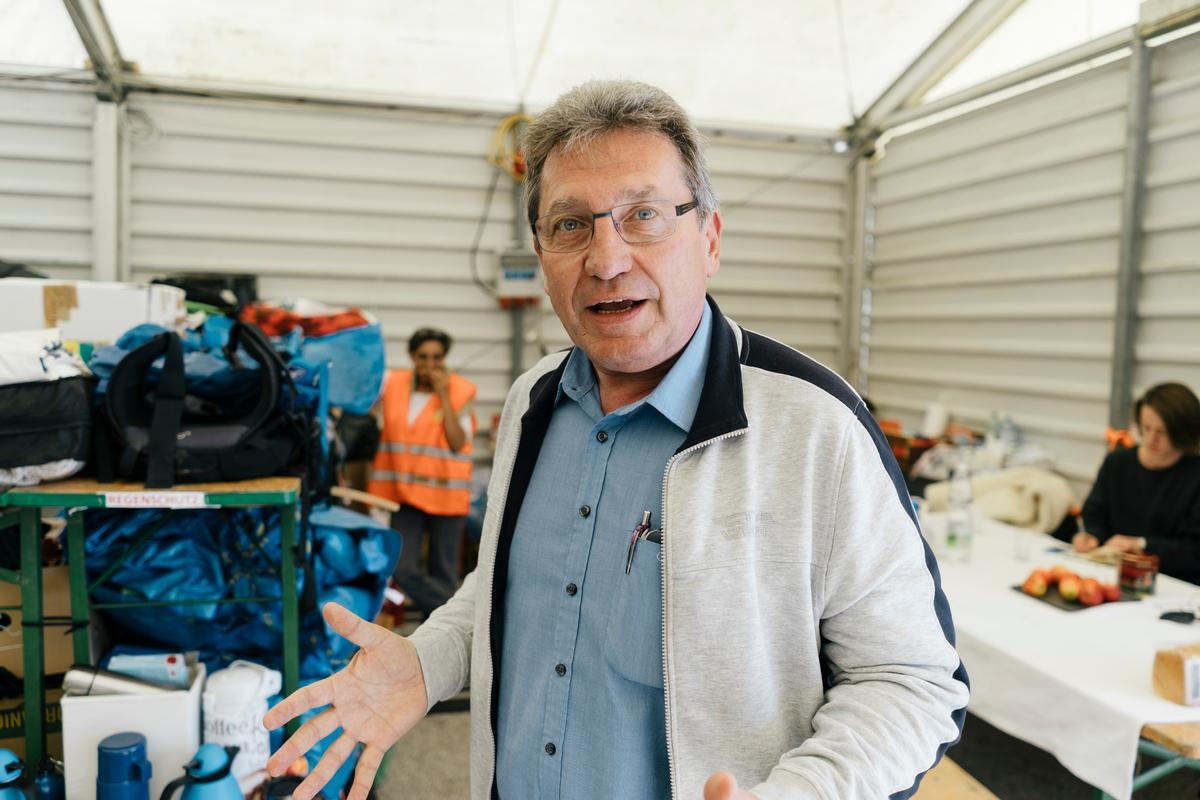
Gerhard Zapfl has been the Mayor of Nickelsdorf for 19 years. This is first time he has had to help manage a big tent where donated supplies are organised.
Gerhard Zapfl might be the most popular man in Nickelsdorf, judging by the rapturous reception he receives when he turns up at Irmtraud's distribution warehouse. "You'll need a mic," the UNHCR cameraman tells him before we begin our interview. Gerhard scoffs, playfully. "But I can talk very loudly, you know, it's not necessary," he jokes, and everybody laughs. With his jovial, booming voice, and friendly, easy-going demeanour, it's no wonder that Gerhard has been the mayor of Nickelsdorf for 19 years.
But, until last month, Gerhard had never imagined having to deal with the kind of crisis currently playing out on the edge of town.
"The situation is a very difficult one," he says, turning serious. "So many refugees are crossing our border. We want to help them, want to support them, give them food and drink and so on. But it's not a political solution."
"The heart of our people is open for these refugees."
Gerhard sips a coffee, wordlessly handed to him by Irmtraud, who, at 66, has watched him grow up. Now, he is a father himself and incredibly proud of how his town has responded to those arriving at its border. "Nobody knows them, but the heart of our people is open for these refugees," he says. "We give them the first support and wish them to find a better way of life."
But, with a population of just over 1,500 people, there is only so much that Nickelsdorf can do. Gerhard hopes EU leaders will soon work out a solution. "I hope that they can find a way, a strategy, to find a real solution to this problem," he says.
The student, Vienna
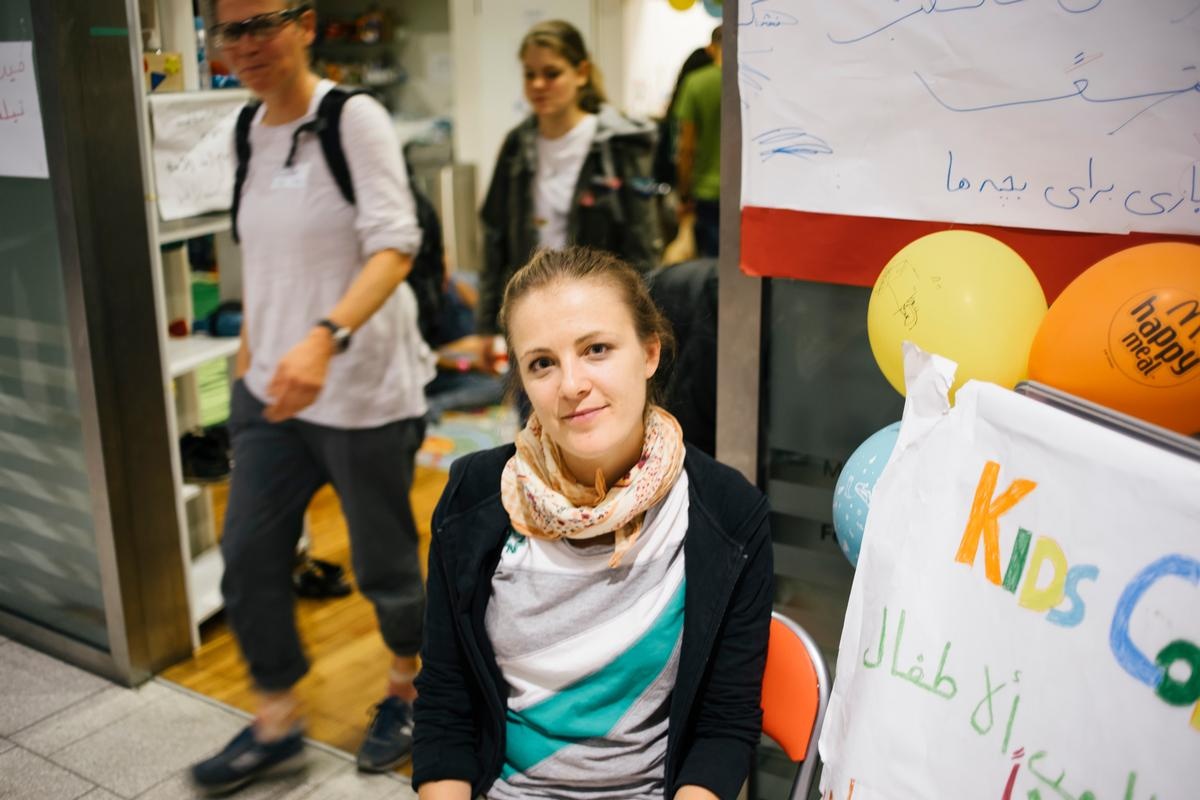
Simone looks after refugee children at the "Kids Corner" in Vienna's Westbahnhof train station. She is also studying at university and working as a waitress.
"I'm surprised you find the time," I tell Simone, when we meet at the 'kids corner' she helps run for refugees at Vienna Westbahnhof train station. She shrugs, with a weary smile. It's been a long day volunteering, on top of studying for university and her job as a waitress. "I'm surprised too," she says. "But I think we have to do this for the children."
What started as two students playing with refugee children on the floor of the station has evolved over the last few weeks into a fully-functioning kindergarten. Now, kids from Syria, Iraq and Afghanistan flit happily around the brightly-coloured room, and drawings of hearts and happy families adorn the walls. It is a far cry from the bombs and bullets back home.
Simone has spent the last 14 days watching over it all, sometimes working 12-hour shifts. It's a demanding job. Just today, the kindergarten has welcomed over 300 children, but Simone loves helping out.
"Every day is different," she says. "Sometimes I play with the children, but on other days I'm just running around and organizing things – bringing them food or going to Caritas," an Austrian charity.
"We have to do this for the children."
There's a great sense of camaraderie between the many different refugee services in Vienna. "If we have too much money, we'll bring it to others," she tells me. "If we need something, we'll call them and say we need it and they'll bring it. It's very good co-working between all the organizations."
When I ask Simone if she is proud of Austria, she pauses. "First, maybe I have to sleep," she says, laughing. "And then we can be proud of it."
The refugee, Nickelsdorf
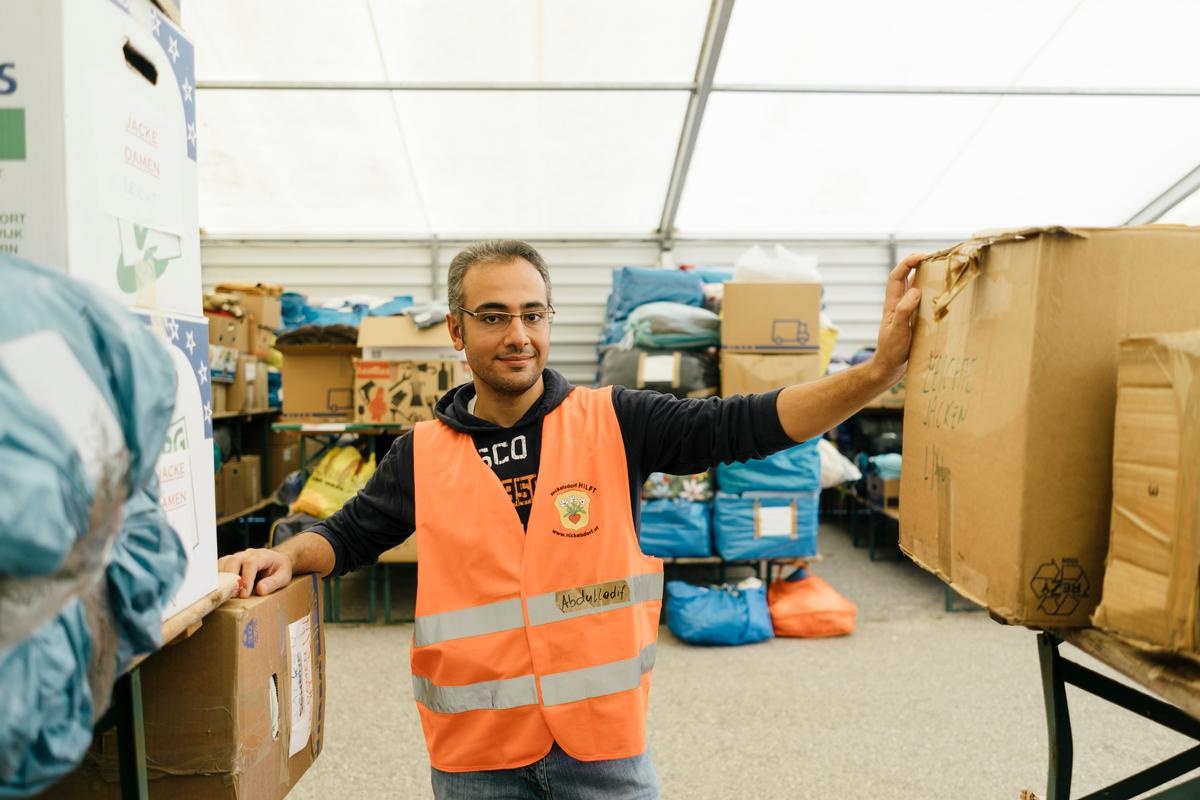
Abdulladif, a refugee from Syria himself, organises donations which will be given to refugees arriving in Nickelsdorf. "It's my duty to help the people," he says.
It's been three months since Abdulladif first arrived in Nickelsdorf, stumbling over the border after a long trip from Syria. Now, he loves the town so much that he never wants to leave. In fact, he's only been to Vienna once and that trip lasted an hour – just enough time for coffee and a quick look at St. Stephens Cathedral. "I will stay here," he says, beaming. "I prefer to be here."
Back in the Syrian city of Aleppo, Abdulladif was an accountant. He had a house, which was destroyed by a bomb 18 months ago, and a family, whom he hopes to bring to Austria. At the moment, they are still living a nightmare inside Syria.
"Bombs are usual," he tells me, quietly. "You can't sleep. Boom! Boom! There are a lot of guns, a lot of weapons, a lot of bombs."
Since his arrival, he has volunteered with Irmtraud, sorting through donated food and clothes and taking them to the border to distribute to refugees. He also acts a translator. "It's my duty to help the people," he says. "Not because they are Arab or Muslim, but because they are refugees, like me."
Along with the 22 other asylum seekers in Nickelsdorf, Abdulladif lives in a hotel that now turns away everyone but refugees. The reality of a life away from war and fear still hasn't sunk in. "We have electricity here always," he exclaims. "All day! In Aleppo – oh my god – there is no electricity or water for 40 days."
Perhaps he might become an accountant in Nickelsdorf one day? "Maybe," he says, smiling. "But first I must learn Deutsch, of course."
The translator, Vienna
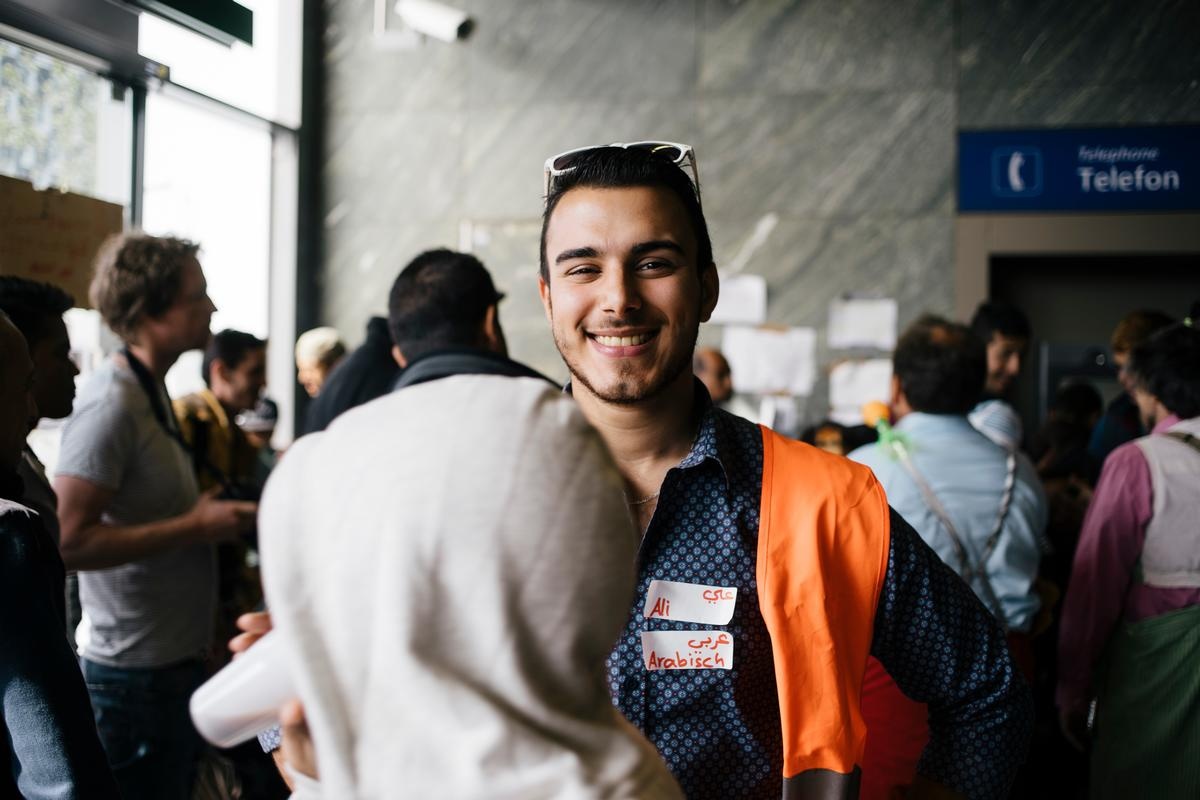
Ali, from Syria, is a volunteer translator in Vienna. He helps refugees to find their way to trains but he also helps them to get medical help or legal assistance.
Ali patrols the halls of Vienna's central train station with a friendly smile and a pair of white-rimmed sunglasses. He takes his volunteer role as a translator seriously, for he knows all too well how serious this situation is.
Back in Syria, he'd been a student. Then the war hit home. "My father brought me to Austria three years ago," he tells me. "I flew by plane."
Now, for the thousands of refugees seeking shelter, food and rest in Vienna, it is a very different story. Most have spent days, weeks and months making perilous journeys across land and water, in a desperate effort to find safety in Europe.
"They have to find a solution, because we are all human beings."
Ali is one of the lucky few to have made it out by plane. Today, as an Austrian resident, he is employed as a social worker, and volunteers at a Vienna train station as part of a grassroots organisation called Train of Hope. Through its donations and volunteers, the group offers a wide range of services – including food, drink, legal advice, electrical outlets, medical care, a missing persons service, a children's play area, Wi-fi, clothes, a radio station, SIM cards, restrooms, showers, and even train tickets – for those who can't afford them.
As both a Syrian and a volunteer in Austria who helps hundreds of desperate refugees every day, Ali pleads for EU leaders and governments to find a solution to the tragedy currently engulfing Europe.
"They have to find a solution, because we are all human beings," he says.
The teacher, Vienna
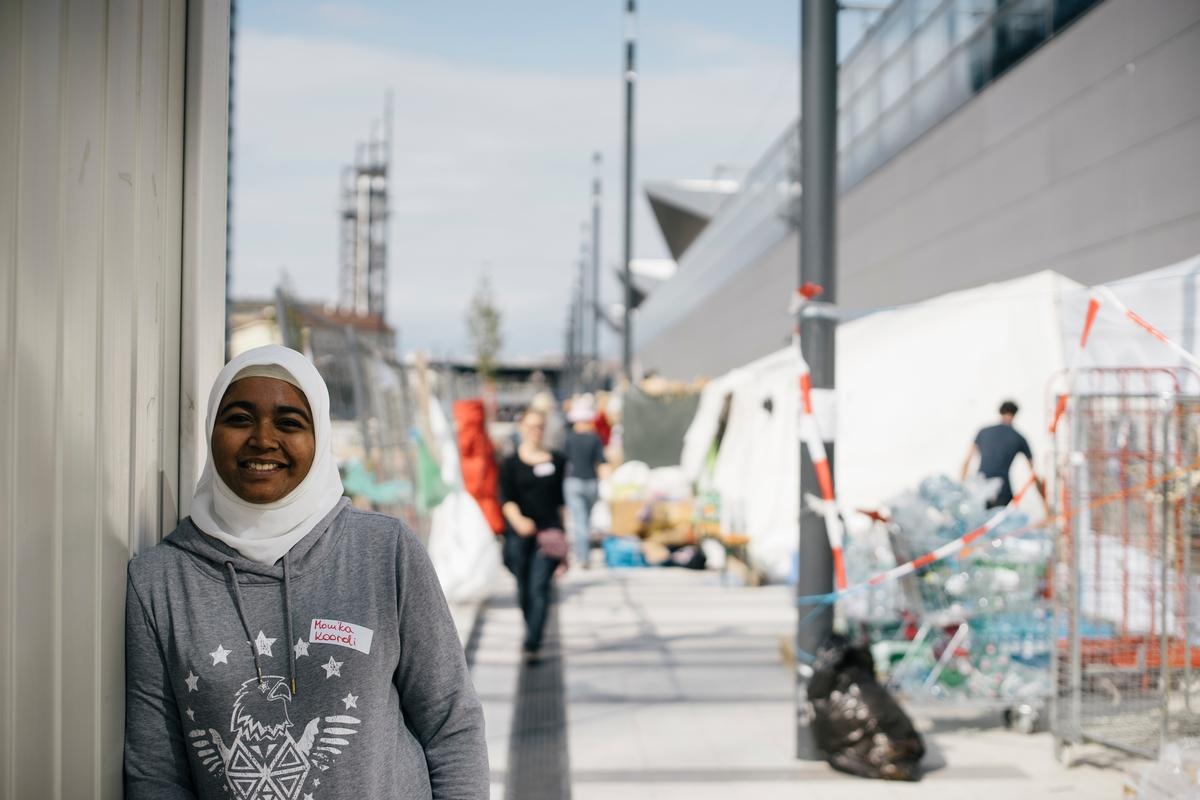
Monika helps co-ordinate volunteers and donated items at Vienna's Hauptbahnhof train station.
"Let's start here," says 24-year-old Monika, a teacher and Train of Hope volunteer at Vienna's Hauptbahnhof train station, as she shows me one of several huge tents filled with boxes. They're packed with clothes, food and drink for the hundreds of refugees travelling through here every day. "This is our store. It's very big and it's getting bigger every day. If you go in you can get clothes, bags, everything. People just choose what they need."
All day, every day, hundreds of volunteers just like Monika spend their time in the station, helping refugees with food, drink, advice and medical care. There are doctors, students, psychologists – even refugees themselves.
"This is our lawyer," Monika says, showing me a desk where a woman offers advice to two Syrian men through a translator. "There is always someone here if you need any advice about asylum or which route to take."
And it's not just Austrians supporting Train of Hope. Volunteers are also coming from further afield. "We actually had a group of people from the UK who came down with 40 cars of stuff to donate. Yesterday, there was someone from Argentina and there was one from Thailand."
Like the other volunteers, Monika, who is an Austrian of Indian and Bangladeshi descent, works long days. She's been known to help for 16-hours straight. But still the volunteers keep on coming. "You can't count on people being here every single day, but I think it's really impressive how well it functions," she says, as we finally come full circle on our tour. "And we don't close. We're here all night. If there's somebody at 4am we just take care of them."


